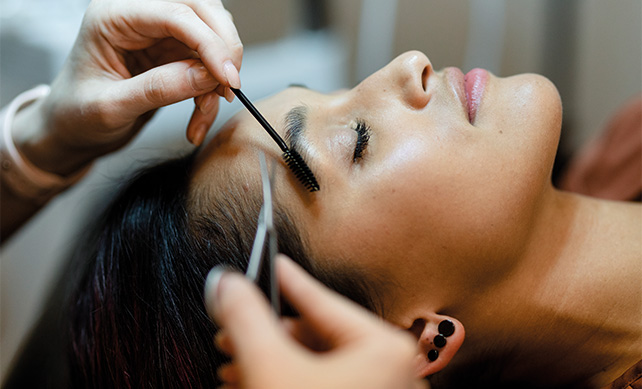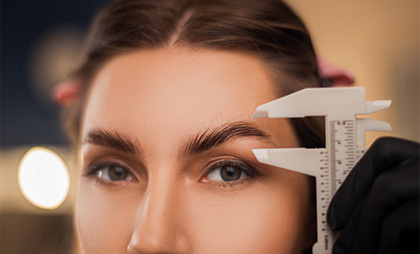Eyebrow Lift

WHAT IS THE EYEBROW LIFT PROCEDURE?
An eyebrow lift, also known as a forehead lift or brow lift, is a cosmetic procedure. It aims to rejuvenate the upper portion of the face. Eyebrow lift surgery elevates the eyebrows and reduces the appearance of wrinkles and lines on the forehead and between the eyes. The procedure can create a more alert, youthful, and refreshed appearance.
Although most eyebrow lift surgeries can be done under local anesthesia, some techniques may require general anesthesia. There are several types of brow lift surgeries. Some of these are as follows:
- Endoscopic brow lift: This minimally invasive technique uses an endoscope, a small camera attached to a thin, flexible tube. The endoscope is used to visualize the treatment area through small incisions within the hairline. The surgeon uses specialized instruments to lift the forehead tissues, reposition the eyebrows, and secure them in their new, elevated position.
- Coronal brow lift: This is a more traditional approach compared to the others. It involves a long incision across the scalp, from ear to ear, hidden within the hairline. The surgeon lifts the forehead skin, tightens the underlying muscles, trims excess skin, and repositions the eyebrows.
- Hairline brow lift: Similar to a coronal brow lift, this technique involves an incision along the hairline. This approach can be beneficial for patients with a high forehead. It can help reduce the forehead’s height and lift the eyebrows.
- Temporal or lateral brow lift: This technique targets the outer portion of the eyebrows. It involves small incisions made within the hairline above the temples. The surgeon lifts and repositions the outer brow area to create more youthful facial features.
Direct brow lift: This technique is less commonly used and involves an incision directly above the eyebrows within the natural creases. The surgeon removes a small amount of skin and tissue to elevate the brow position.
The choice of technique depends on the patient’s goals, facial anatomy, and the surgeon’s preferences. As with any surgical procedure, a brow lift has potential risks and complications. A skilled and experienced surgeon will work diligently to minimize these concerns and help achieve optimal results.Following an eyebrow lift surgery, it is common for patients to experience swelling and bruising around the incision site. These side effects typically occur around the forehead, eyebrows, and eye region.The recovery time for an eyebrow lift can vary depending on the individual and the surgical technique used. On average, patients can expect to return to work and resume normal daily activities within 7-14 days. However, following your surgeon’s guidelines and recommendations for post-operative care is essential to ensure optimal healing.



deal candidates for an eyebrow lift are those who want to address aging or sagging in the forehead and brow area. This procedure can improve the appearance of wrinkles, heavy brows, and drooping eyelids. The following factors may make someone a good candidate for an eyebrow lift:
- Good overall health: Candidates must be in good physical condition. They should be free of any medical issues that could heighten the likelihood of complications or hinder recovery. A comprehensive medical assessment is typically conducted before surgery to guarantee the patient’s safety.
- Non-smoker: Smoking can significantly increase the risk of complications and impair the healing process. Surgeons typically recommend that patients quit smoking several weeks before and after surgery to minimize these risks.
- Realistic expectations: Candidates must clearly understand what an eyebrow lift can achieve and maintain realistic expectations regarding the outcome. While the procedure can significantly rejuvenate the upper face, it cannot stop aging or create an entirely new appearance.
Signs of aging or sagging: Ideal candidates are those experiencing sagging eyebrows, horizontal forehead wrinkles, or vertical frown lines between the eyebrows. An eyebrow lift can help address these concerns and create a more alert and youthful appearance.
Emotional stability: Undergoing cosmetic surgery can be an emotional experience. Candidates need to be emotionally stable and prepared for the physical and psychological aspects of the procedure and recovery process.
It is crucial to consult with a board-certified plastic surgeon to determine if you are a suitable candidate. The surgeon will assess your medical history and discuss your goals. After all these, the surgeon will recommend the most appropriate approach for your unique needs and circumstances.



- Category
- PLASTIC SURGERIES


